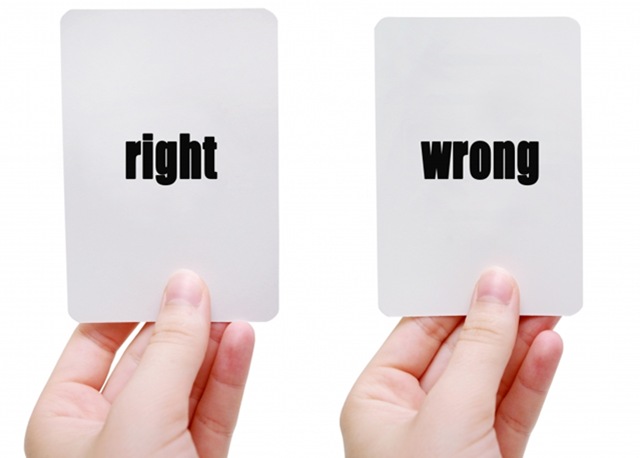Standard issue moral judgment interview
From Psy3242
Revision as of 06:53, 28 April 2008 by Sriegsecker (Talk | contribs)
This method was developed by Lawrence Kohlberg in an effort to explain the development of moral reasoning. The moral judgment interview is a taped, semi-structured, 45-minute long interview, in which the interviewer assesses the level of moral development and reasoning. Participants are asked open-ended questions about a situation they are presented with. Scores are passed on the structure of the answers not on the content.
Contents |
Stages of Moral Development
Kohlberg's theory is broken up into three levels, each with two stages.
Pre-Conventional Level
- Self-centered level – naively egotistic, the concepts of good and bad, right or wrong, are interpreted in terms of pleasant or unpleasant consequences
- Avoiding punishment or obedience to authority
- Judge the morality of an action/situation by its consequences
- Common in children
Stage 1. Obedience and Punishment Orientation
- Do what you are told to avoid punishment.
- How can I avoid punishment?
Stage 2. Self-Interest Driven
- Actions determined by what's in one's best interests
- Let's make a deal mentality
- You scratch my back, and I'll scratch yours
- What’s in it for me?
Conventional
- Conformity level
- Need to meet the expectations of the group norms and social conformity
- Follow law and social order
- Typical in adolescents and adults
Stage 3. Interpersonal Conformity
- Being considerate, nice, kind, etc.
- Do what you are told to avoid punishment
- Including respect, gratitude, etc. into everyday relationships
- Trying to be the good boy/girl
Stage 4. Law and Duty to the Social Order
- Obligation to adhere to the laws
- Society overrides personal needs
- Law & Order Mentality
Post-Conventional
- Principled level
- Notice that individuals are separate from society
- Thus, viewing one's perspective before the society's
- Can be mistaken for Pre-Conventional
Stage 5. Social Contract Driven
- Obligated by the arrangements that are agreed to by due process procedures
- Individuals have different opinions and values
- The greatest good for the greatest number of people
Stage 6. Universal Ethical Principles Driven
- Morality is defined by how rational and impartial people would ideally organize cooperation
- Laws are effective when rooted in justice for all
- Social contracts are not essential for moral action
- One acts because it is right
- Kohlberg believed stage, but admitted it was hard are rare to achieve
Information for the stages from wikipedia.org and www.emeraldinsight.com/fig/0260210903001.png

